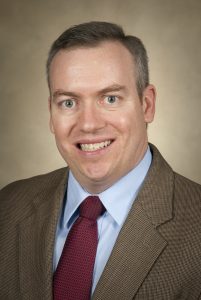
TUSCALOOSA, Ala. — Development of open-source software could be improved through understanding how isolated programmers collaborate, according to a research project underway by a computer scientist at The University of Alabama.
The web browser Firefox, for example, is Free/Libre and Open Source Software, or FLOSS. In these applications, the source code, or the instructions that control how the program behaves, is available to be viewed and modified by users.
The owner of the software benefits from the contributions of people spread across the Internet to improve the quality and performance of the software and to encourage widespread adoption.
However, the software development process can bog down because the developers rarely meet in person or, in some cases, do not communicate outside of reviewing each other’s code, said Dr. Jeffrey Carver, associate professor of computer science.
The category of software includes a host of products, some of which are widely used on both desktop and mobile platforms including Google’s Chrome web browser and the Android operating system. FLOSS software is typically developed by a network of distributed contributors who interact virtually, through mechanisms such as email, message boards and instant messaging, as opposed to more traditional, co-located development teams who interact physically in a workplace environment.
In the physical interactions, developers can more easily determine which teammates are trustworthy with experience in particular tasks. This knowledge should speed the process of developing a quality product.
“Project success depends largely upon the effectiveness of collaboration within the team, but, in cases where team members do not meet in person, it is unclear how they form impressions of which teammates are trustworthy or have specific types of expertise,” Carver said.
With almost no physical interaction among developers, FLOSS developers rely on sociotechnical systems, or processes of humans interacting with each other using technology. These developers may communicate through Internet message boards, email or wiki sites that allow people to collaborate on modifying content, but often communicate through code review or online databases of code and software problems.
Past research into distributed developers suggests these teams require more time and resources than co-located teams to do the same amount of work, Carver said.
“The lack of physical interaction among members of distributed teams hinders the process of impression formation, because individuals have difficulty obtaining an accurate view of the expertise and ability of teammates,” he said. “Inaccurate perceptions may lead distributed software developers to improperly disregard teammates’ input, ultimately reducing the productivity of the team as a whole.”
Carver was recently awarded a three-year, $300,000 grant by the National Science Foundation to study mechanisms that help build trust between the developers and improve productivity. Through surveys of open-source developers, monitoring FLOSS projects and building an archive of code reviews, Carver and his students hope to model the process of impression formation among developers, measure the accuracy of their impressions of each other and observe how peer impressions affect project outcomes.
The study’s findings will provide the first model of impression formation in FLOSS projects and could lead to improved distributed development, Carver said.
In 1837, The University of Alabama became one of the first five universities in the nation to offer engineering classes. Today, UA’s fully accredited College of Engineering has more than 4,100 students and about 120 faculty. Students in the College have been named USA Today All-USA College Academic Team members, Goldwater, Hollings, Portz and Truman scholars.
Contact
Adam Jones, engineering public relations, 205/348-6444, acjones12@eng.ua.edu
Source
Dr. Jeffrey Carver, associate professor of computer science, carver@cs.ua.edu